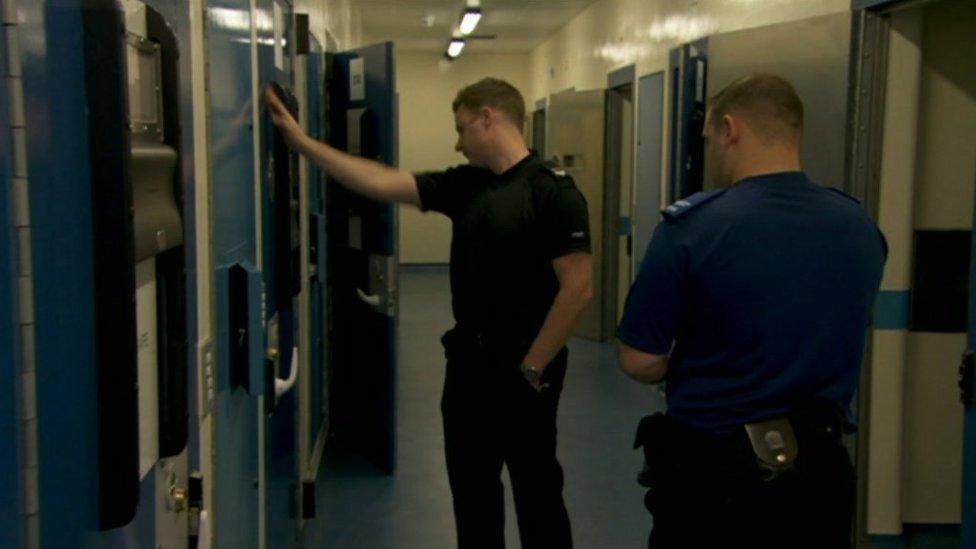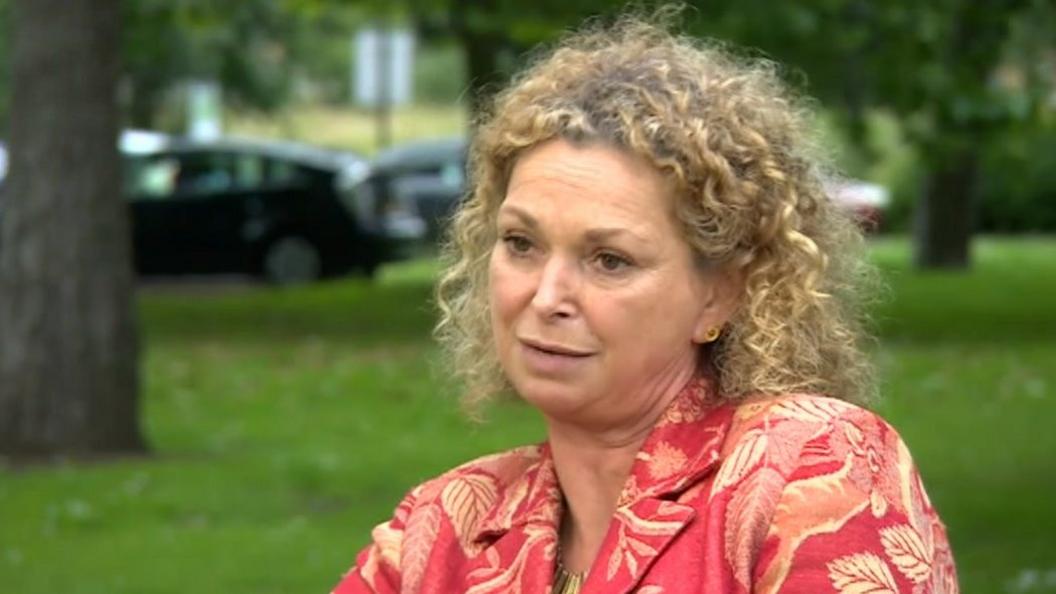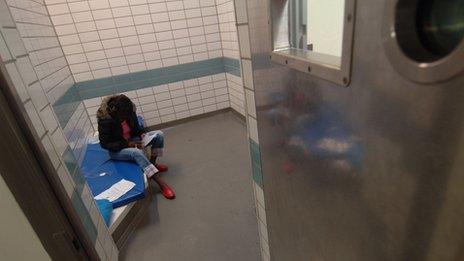Kent PCC orders review as mental health detentions rise
- Published

Detentions in custody place a "massive strain" on the force, the deputy Chief Constable said
Unprecedented levels of detentions under the Mental Health Act in Kent have led police and crime commissioner (PCC) Matthew Scott to set up a review.
He has said about a third of Kent Police time is now spent dealing with cases involving mental health when it is not necessarily the right response.
A report, external said there had been a steady increase in detentions since November.
It said if the trend continued, 2016-17 would see the highest numbers since monitoring began.
Figures showed Kent had 1,005 detentions under the Mental Health Act in 2015-16, out of which 68 people were housed in custody.
The police use custody cells as a place of safety to house mental health patients until the relevant agency takes over their care.
In the first three months of 2016-17, the force has already had 335 detentions in total, with 39 people looked after in cells.
Mr Scott, who is setting up a board to review the issues, said: "It may well be that people are falling through cracks in the system elsewhere. It may well be they've not been able to get hold of somebody else and so they come to the police.
"We're becoming more and more a service of last resort or first resort in certain circumstances."
He said police needed to challenge authorities including Kent's mental health trust where appropriate, but added: "I know that the new chief executive does share my concern."

PCC Matthew Scott is setting up a board to look at the problem
Sarah Holmes-Smith, acute service line director from Kent and Medway NHS & Social Care Partnership Trust, said: "We are working really closely with the police both on operational day-to-day issues but also on a more strategic level."
She said the trust had a mental health triage team based at Kent Police's control room three nights a week, which would expand.
Mental health charity Mind also has counsellors in the control room two nights a week.
Deputy Chief Constable Paul Brandon said: "It puts a massive strain on our diminished resources."
He said the impact on police was not about the initial assessment, but rather the time spent by an officer supervising a mentally-ill person in a cell until the relevant agency arrived.

Suzanne Williams described the time she was taken into a police cell
'Too distressed to speak'
Suzanne Williams, who was taken into custody when she became ill, said: "The police cell was stripped bare, completely. It was just a bench with a little foam mattress
"They do come in and the police were offering me food and drink but I was in such a distressed state that I couldn't even speak to them.
"All I could hear all night were other people screaming, shouting at each other, swearing. They were arguing through the cells all night and that was all I could hear.
"The police did try their absolute best to try and make sure I was put in a hospital, but it got to a point where they had to call the NHS."

- Published1 July 2016

- Published6 June 2013
